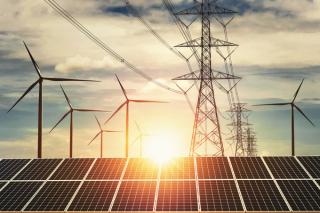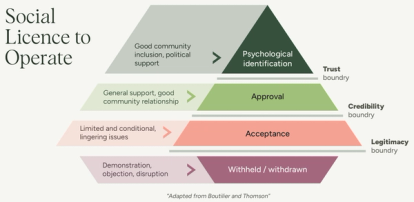
Powering change: Navigating electricity costs and sustainability in Western Australia
- Post Date
- 18 August 2023
- Read Time
- 4 minutes

Not long now until this year’s Energy Week Western Australia Conference in Perth 25 & 26 August, organised by the Australian Institute of Energy, anticipation is high for the robust discussions it will bring. It’s been a year of change in our Western Electricity Market (WEM). As a case in point, the Australian Electricity Market Operator (AEMO) released their latest Quarterly Energy Dynamics Report for Q2 2023 which shed light on the significant surge in electricity costs over the past year. According to the report:
- The weighted average Balancing Price in the Wholesale Electricity Market (WEM) for Q2 2023 was $113/MWh, an all-time record high and a 67% increase from Q2 2022.
- The weighted average Short-Term Electricity Market (STEM) price for Q2 2023 was $101/MWh, a 76% increase compared to Q2 2022 and a Q2-record high.
Electricity costs and a quantum leap in capacity
With electricity costs spiraling upwards, influenced by a multitude of political, financial, environmental, social, technology and legal factors, a pertinent question arises: what value do we place on a livable climate and our environment’s sustainability? Transitioning to a decarbonized electricity grid requires a significant increase in both renewable electricity generation and energy storage capacity. What some stakeholders may not appreciate is the size of this capacity build-out compared to our existing systems. As an example, the total utility-scale generation capacity connected to WA’s South-West Interconnected System (SWIS) in 2022 was 5.9 GW. Towards a net-zero economy and within Energy Policy WA’s “Future Ready” scenario for the 2023 SWIS Demand Assessment, we’ll need a near 10x increase in this capacity, to ~56 GW, between now and 2042. The timeline, a mere 15 years away, represents a huge challenge for building out this much grid-connected power – especially when considering our economy’s significant labour and materials constraints.
Generation capacity is only one half of the story. Without a very significant and forward-looking build-out of our transmission infrastructure (which is still lacking a clear financing plan from the WA government), the connection to all this additional capacity will not happen. The march towards such a substantial increase in both generation and transmission capacity is an ambitious requirement to propel sustainable energy transformation.
As gears shift towards renewable energy and energy storage expansion, sustainably is essential for upholding a social license to operate. The endeavour is not merely about numbers and kilowatts. Community acceptance remains vital for retaining a social licence to operate during project development and delivery. Social License to Operate (SLO) has become a topical subject in the Energy industry. How governing authorities and developers interact with the communities and the environment in which they operate is central to sustainable development because it dictates the level of future access by society to energy sources and the associated transition.
The Energy sector, in particular, has recently witnessed the emergence of society and local communities as important governance actors that demand a greater share of benefits and increased involvement in the decision-making process. As a result of this, governing authority is now shifting toward these non-state actors. A transmission line project may have obtained the relevant development, operational and legal licenses to operate however it is now imperative that the project gains the broad acceptance and on-going approval from the network of stakeholders that are the guardians of the social, economic and environmental aspects of the locations where development is taking place. Early community engagement can result in better informed social outcomes as well as support for the company’s proposed activities and the development of social capital and empowerment. Such elements are key for the company to build legitimacy, credibility and trust with the network of stakeholders, which equates to social licence to operate.
Our new APAC Technical Director – Social Performance, Esther Diffey, brings over 20 years of experience in obtaining and retaining community acceptance and social licence on large linear infrastructure projects and providing strategic advice on mitigating social outrage. Esther and the SLR Social Performance specialists use a progressive approach to engage early with communities and stakeholders during the planning phase to minimise project delays and disruptions; focusing on enhancing stakeholder relationships to ensure that at both the project, company and community level, there is defined ownership, responsibility and accountability.

SLR Consulting provides solutions encouraging forward-looking approaches to ensure the transition is environmentally and economically viable in order to thrive in the long term.
Recent posts
-

-

Navigating the evolving landscape of corporate sustainability and communications in the US
by Chynna Pickens
View post -
